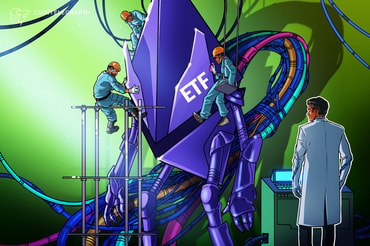Bitcoin Rollup Citrea Aims to Make BTC a Programmable Asset With ZK Proofs, Raises $14M Series A

Election 2024 coverage presented by
Citrea, a Bitcoin project striving to expand the utility of the original cryptocurrency by using zero-knowledge technology, said it raised $14 million in Series A funding.
The investment was led by Peter Thiel’s Founders Fund and included contributions from angel investors Erik Voorhees and Balaji Srinivasan, according to an announcement shared with CoinDesk on Thursday.
Citrea, which raised $2.7 million of seed funding in a Galaxy-led round in February, uses the BitVM computing paradigm that is designed to allow Ethereum-style smart contracts on Bitcoin.
“Citrea is an EVM-compatible layer, meaning all the applications on Ethereum can simply deploy on Citrea without having to change anything,” Orkun Mahir Kılıç, CEO of Citrea builder Chainway Labs, told CoinDesk in an interview last month.
The project aims to transform the Bitcoin blockchain into a venue for smart contracts by making bitcoin (BTC) a programmable asset through the use of zero-knowledge (ZK) technology.
ZK technology allows data to be transferred securely between parties through the ability to demonstrate knowledge without actually revealing the data and without the prover and verifier interacting.
“Citrea enhances the capabilities of Bitcoin blockspace with ZK technology and enables the Bitcoin network to support diverse on-chain applications and platforms,” Citrea said.
The goal of allowing greater utility is one of “critical” importance, according to Citrea. While BTC has served well as a form of digital gold, it risks being sidelined by users relying on intermediaries and external networks to provide scalability, Citrea said.
Bitcoin is therefore being undermined by the absence of a “proper scalability solution,” hindering its role in decentralized finance (DeFi), which means it “risks losing its relevance in DeFi and becoming obsolete as a network.”
The use of intermediaries to expand Bitcoin’s utility is being explored by projects like layer-2 BOB, which aims to create bridges to other networks like Ethereum for the execution of transactions that are ultimately anchored on Bitcoin.
Read More: Leading Bitcoin Layer 2 Picks Optimism’s Red-Hot Superchain to Link to Ethereum
Edited by Sheldon Reback.
Disclosure
Please note that our privacy policy, terms of use, cookies, and do not sell my personal information have been updated.CoinDesk is an award-winning media outlet that covers the cryptocurrency industry. Its journalists abide by a strict set of editorial policies. CoinDesk has adopted a set of principles aimed at ensuring the integrity, editorial independence and freedom from bias of its publications. CoinDesk is part of the Bullish group, which owns and invests in digital asset businesses and digital assets. CoinDesk employees, including journalists, may receive Bullish group equity-based compensation. Bullish was incubated by technology investor Block.one.
Jamie Crawley is a CoinDesk news reporter based in London.













